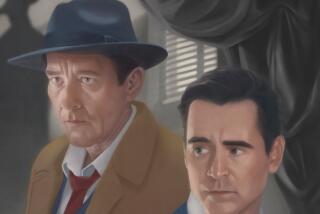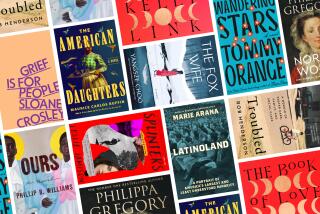Novelistâs Quest for the Write Words
Best known for âSacred Hunger,â his Booker Prize-winning historical novel depicting the horrors of the 18th century slave trade and the moral dilemmas of those involved in it, Barry Unsworth has tackled an impressive range of subjects in his fiction, from medieval justice in âMorality Playâ to the Turkish massacre of Armenians in âThe Rage of the Vulture.â Historical fiction is his forte, but he has also written novels with modern settings. He brings to his work a powerful imagination, a passionate sense of morality and the fruits of his capacity for intense research.
âSugar and Rumâ is the product of the time in his life when Unsworth was researching the background for âSacred Hungerâ and (judging by this semiautobiographical novel) suffering from a severe case of writerâs block. The setting is Liverpool in the 1980s, shown here as a devastated city further crippled by the policies of Margaret Thatcherâs government. Sixty-three-year-old Clive Benson, a writer who has come here to do research about the Liverpool slave trade, wanders the streets and alleyways, surveying the desolation and bending the ears of the local drunks with his rambling political diatribes and philosophical perorations. Blocked himself, Benson has been supplementing his meager income by offering his services as a literary consultant to aspiring writers âbogged downâ by problems with their works in progress. Ironically, now he, the putative âunblocker,â has become more blocked than any of his hapless pupils, a motley crew whose struggles with narrative and style are amusingly and touchingly depicted.
Benson broods over his ex-wifeâs accusation that he cares more about his fictional characters than about real people, that metaphors matter more to him than real-life events. He broods even more obsessively over the monstrous inhumanity of the slave trade, which once played an important part in the prosperity of the port city of Liverpool: âElegance, restraint, the virtues of the period. Founded on fear strong enough to burst the heart. That fear black people must have felt, taken from their forest homes . . .â And he broods over his own unaccustomed inability to write: âPeople talk about writerâs block as if it were some humorous occasional impediment. . . . This takes no account of the violence in the word, the choked arrest. Block. Itâs a violent affliction. . . . I see it in the eyes of children, . . . on the faces of people walking about this city, mothers pushing prams, mad old ladies, men in business suits. . . .â
In the course of his wanderings and broodings, Benson comes across an old army buddy from World War II who is now a homeless squatter. This encounter leads him to an even more disturbing reunion with another fellow veteran who has become a megarich merchant banker spouting Thatcherite propaganda about the glories of âa property-owning democracy.â But what happens, Benson demands, when this description turns into a definition meaning that âonly the people who own property have a share in the democracy, and the more they own, the bigger their shareâ? He further infuriates his host by proceeding to liken this attitude to the 18th century Liverpool slave trade.
Unsworth is a writer of considerable intensity, and in this novel, he fuses a grimly enthralling narrative from several diverse elements: Bensonâs spiritual distress, his seriocomic dealings with his students, his memories of the war and his rumination on the parallels between the 18th century slave trade and the late-20th century version of Social Darwinism. The novelâs only weak point is its finale. Unsworth provides a dramatic and suspenseful denouement, yet the final note weâre left with at the end of the day is a confusing mixture of shock, exhilaration and possible anticlimax. But, it seems evident that âSugar and Rumâ served the purpose of freeing Unsworth to write his impressive historical novel about slavery. In the process of getting himself restarted, he manages to give us an introspective novel that is compelling in and of itself.
More to Read
Sign up for our Book Club newsletter
Get the latest news, events and more from the Los Angeles Times Book Club, and help us get L.A. reading and talking.
You may occasionally receive promotional content from the Los Angeles Times.






